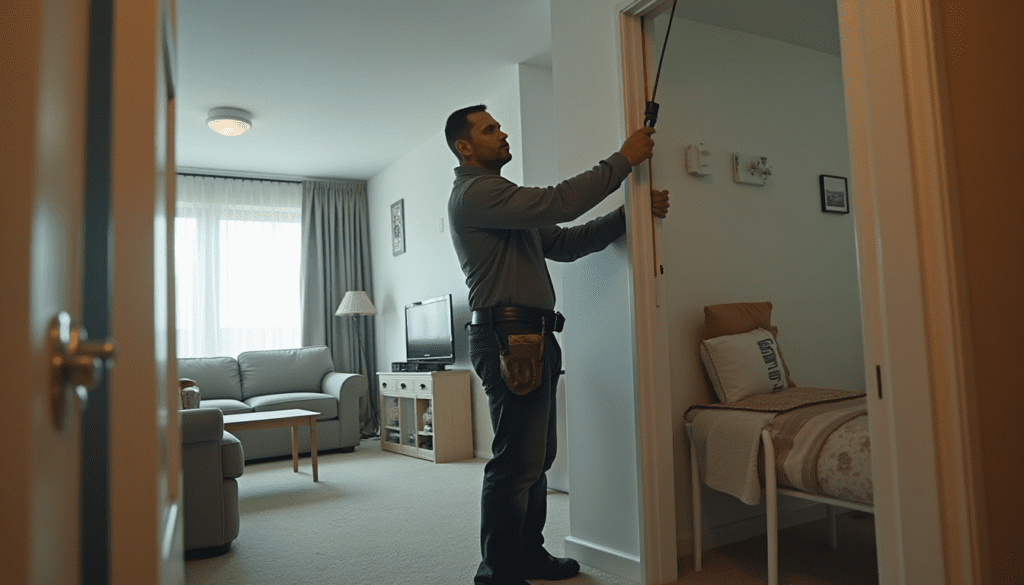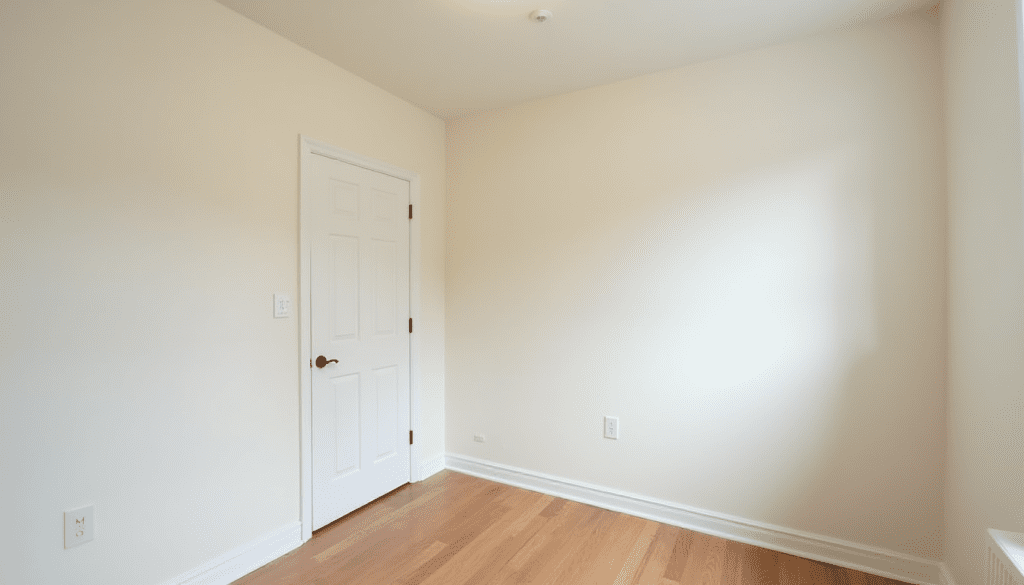Managing tenants who consistently pay rent late is one of the most frustrating challenges landlords face. In Essex County, NJ, where rental demand is high but legal protections for tenants are also strict, landlords must strike a balance between protecting their investment and following state and county regulations. Consistently late rent can affect cash flow, disrupt financial planning, and create unnecessary stress. However, with the right strategies, landlords can address late rent while staying compliant with New Jersey landlord-tenant laws.
This guide explores practical steps for handling habitual late payments in Essex County. From understanding New Jersey’s legal framework to communicating with tenants and preventing late payments before they happen, you’ll learn how to manage this issue effectively. Along the way, we’ll also highlight resources available to Essex County landlords and connect you with proven strategies used by experienced property managers.
Understanding the Legal Framework in New Jersey & Essex County
New Jersey landlord-tenant law is very specific about how landlords may deal with tenants who habitually pay rent late. In Essex County, these rules are enforced through local courts, meaning landlords must understand and follow the correct process if they want to enforce consequences.
Definition of “Habitual” Late Payments Under NJ Law
New Jersey courts often define a tenant as “habitually late” when there is a consistent pattern of late payments, even if rent is eventually paid each time. According to legal guidance from HNW Law, the courts recognize repeated lateness as a valid cause for action—even when the tenant is otherwise current on rent. This means that a landlord doesn’t have to wait until unpaid rent accumulates before addressing the issue.
Notice to Cease & Notice to Quit in NJ
If a tenant consistently pays rent late, landlords must first serve a Notice to Cease. This legal document warns the tenant that habitual late payment will no longer be tolerated. If the tenant continues, the landlord can then issue a Notice to Quit, which begins the eviction process. Essex County courts require strict adherence to these notices before allowing an eviction case to proceed. For more detail, resources like NJ Evict provide clear explanations of these legal steps.
Local Essex County Ordinances & Procedures
In Essex County, the courts may also consider whether the landlord has a history of accepting late payments without objection. If you’ve previously allowed a tenant to pay late without documenting consequences, the court may see this as acceptance of the behavior. For this reason, consistent record-keeping and timely responses to late rent are critical.
Why Tenants Pay Late: Common Causes in Essex County
Before addressing late rent, it’s useful to understand why tenants may struggle with timely payments. In Essex County, the causes vary, but several patterns appear frequently.
Financial Hardship & Job Instability
Many tenants face financial struggles, especially in areas of Essex County with fluctuating employment opportunities. Layoffs, reduced work hours, or sudden medical bills can make it difficult to keep up with rent payments.
Poor Budgeting or Disorganization
Sometimes, late rent isn’t about income levels but about money management. Tenants who don’t budget effectively or forget due dates may regularly send payments after the deadline. In these cases, communication and structured reminders can help.
Payment Method or Logistical Issues
Outdated or inconvenient payment methods also contribute to late rent. For example, if tenants must pay by check or in person, delays are more likely. Providing modern payment options—such as online portals or automatic drafts—can eliminate many of these issues.
Seasonal or Irregular Income
Some tenants, such as contractors, freelancers, or seasonal workers, receive income on an irregular basis. In these situations, late rent payments can become a pattern despite good intentions.
Prevention: Clear Lease Agreement Terms
One of the most powerful tools landlords have to prevent habitual late payments is a well-written lease. In New Jersey, a lease agreement must clearly outline payment terms and consequences to be enforceable in court.
Setting Due Dates, Grace Periods, and Late Fee Policies
Landlords should always specify the rent due date, any grace period allowed, and the exact late fee amount. New Jersey courts generally allow reasonable late fees, but they must be detailed in the lease to be enforceable. For example, stating that “rent is due on the 1st and late after the 5th, with a $50 late fee” removes ambiguity.
What Needs to Be in Writing to Be Enforceable
Verbal agreements or informal practices will not hold up in Essex County court. Every detail, from payment methods to late fees, must be in writing. If a landlord has previously accepted late rent without enforcing the lease, it’s important to formally notify the tenant that late rent will no longer be tolerated.
Specifying Consequences & Escalation Steps
A strong lease doesn’t just mention fees—it also spells out the process if late payments become habitual. For example, the lease may reference the landlord’s right to issue a Notice to Cease after repeated late payments. This creates a paper trail that strengthens the landlord’s position in court.
Communication Strategies
Clear, respectful communication is often the difference between resolving late payments and heading toward eviction. Many tenants who are consistently late may respond positively to structured, professional communication.
Early Warnings & Reminders
Sending reminders a few days before rent is due can prevent forgetfulness. Landlords who use text or email reminders often see better on-time payment rates. Automated systems built into rent collection software are especially effective.
Open Dialogue & Understanding Tenant Situations
In Essex County, where many communities face financial challenges, showing empathy can go a long way. A simple phone call or meeting may reveal that the tenant is dealing with a temporary issue. If a solution can be worked out—such as a short-term payment plan—it may prevent escalation.
Using Automated Tools
Online platforms and property management software allow landlords to automate reminders, generate receipts, and track late payments. These tools reduce administrative workload while also ensuring consistency in communication.
Incentives & Positive Reinforcement
Not all solutions need to be punitive. In fact, Essex County landlords who mix accountability with rewards often see more long-term success with tenants.
Discounts for Early Payments
Offering small discounts for rent paid before the due date can encourage timely payment. For example, a $20 discount may seem minor, but it can be a strong motivator for tenants.
Small Rewards for On-Time Payments
Another approach is to reward several consecutive on-time payments. This can be as simple as a gift card, or a note of recognition. While not required, these gestures help build positive landlord-tenant relationships.
Reporting to Credit Bureaus
Some rent collection systems now allow landlords to report on-time payments to credit bureaus. This creates a long-term incentive for tenants to pay consistently, as it impacts their credit score.
By combining legal enforcement with preventive strategies and positive reinforcement, Essex County landlords can address the problem of late rent in a balanced and effective way. The next section will discuss enforcement and consequences, including how to handle repeated violations under New Jersey law.
Enforcement & Consequences
While prevention and communication are important, there are times when a landlord must enforce consequences for tenants who habitually pay rent late. In Essex County, NJ, this process is guided strictly by New Jersey landlord-tenant law. Knowing when to escalate and how to follow the legal process can protect landlords from costly mistakes in court.
Issuing Late-Rent Notices
The first step in formal enforcement is a written notice that clearly documents the late payment. This should reference the lease agreement, the amount due, and any applicable late fees. Even if the tenant pays after the notice, documenting the pattern creates a strong record if the issue continues.
Notice to Cease Late Payment
For tenants who repeatedly pay late, landlords in Essex County must serve a Notice to Cease. This document informs the tenant that their behavior is no longer acceptable and that further violations may result in eviction proceedings. Without this step, courts may dismiss an eviction case for habitual late rent.
Notice to Quit & Eviction Process Under NJ Law
If a tenant continues to pay late after receiving a Notice to Cease, the landlord may issue a Notice to Quit. This begins the eviction process. In Essex County, eviction cases are heard in landlord-tenant court, where the judge will review the history of payments, notices, and lease terms. Landlords who keep thorough records and follow each legal step are more likely to succeed in court.
When Eviction Becomes Necessary
Eviction should always be a last resort. However, in cases where late rent disrupts cash flow and damages the landlord’s ability to manage their property, eviction may be unavoidable. Essex County courts take eviction cases seriously, so landlords must show that all notices were properly served and that the tenant had opportunities to correct their behavior.
Payment Flexibility & Solutions
Not all tenants who pay late are unwilling. Many are simply unable to meet strict deadlines due to financial or logistical issues. Offering flexible solutions can help resolve the problem without resorting to eviction. These solutions also demonstrate good faith, which courts in Essex County may look upon favorably if legal proceedings occur later.
Payment Plans & Restructuring Due Dates
For tenants with irregular income, a structured payment plan can make rent more manageable. For example, splitting monthly rent into two installments may align better with the tenant’s paycheck schedule. In some cases, adjusting the due date by a few days can resolve persistent lateness.
Accepting Partial Payments: Risks & Caveats
While partial payments may help tenants in the short term, landlords must be cautious. Accepting partial rent may weaken a landlord’s ability to enforce eviction later. In New Jersey, courts may interpret this as a sign the landlord accepted the arrangement. To protect themselves, landlords should document all agreements in writing and specify whether partial payments are temporary or conditional.
Online Rent Collection & Auto-Pay Options
Modern technology has made rent collection more convenient than ever. Online portals and auto-pay systems reduce excuses for late rent by allowing tenants to pay instantly. Many Essex County landlords are adopting these tools to improve cash flow and reduce administrative stress. Platforms that include reminders and late fee automation are particularly effective.
Record-Keeping & Documentation
One of the most important practices for landlords dealing with habitual late payments is thorough record-keeping. Essex County courts rely heavily on documented evidence when ruling on landlord-tenant disputes. Without records, even valid claims may fail.
Keeping Logs of Payments, Emails, and Notices
Landlords should maintain a detailed log of all rent payments, including dates received and amounts. In addition, save copies of emails, text messages, and letters related to late payments. This documentation creates a timeline that can be used in court if eviction proceedings begin.
Paper Trail for Legal & Court Use
A well-documented paper trail shows the court that the landlord acted reasonably and gave the tenant multiple opportunities to correct their behavior. This includes copies of lease agreements, late payment notices, Notices to Cease, and Notices to Quit. Proper documentation often determines the outcome of eviction hearings in Essex County landlord-tenant court.
Dealing With Repeat Offenders vs. One-Time Late Payers
Not all late-paying tenants should be treated the same. Essex County landlords must learn to differentiate between tenants who occasionally miss a deadline and those who make late payment a consistent habit.
Isolated Incidents
One-time late payments are often the result of temporary hardship or forgetfulness. In these cases, a reminder or late fee may be enough to correct the issue. Overly harsh consequences for a single mistake can damage the landlord-tenant relationship unnecessarily.
Patterns of Habitual Late Payments
When a tenant consistently pays late despite warnings and notices, landlords must take stronger action. A graduated approach—starting with reminders, moving to late fees, then serving a Notice to Cease—ensures fairness while maintaining authority. If the problem persists, eviction may become the only option.
Graduated Consequences
Having a structured escalation plan prevents inconsistency and demonstrates fairness. For example, landlords might enforce a small late fee after the first violation, a larger fee after the second, and a Notice to Cease after the third. This approach protects both the landlord’s rights and the tenant’s opportunities to comply.
Cost of Late Rent: Financial & Operational Impacts
Late rent is not just an inconvenience—it has real financial and operational consequences for landlords in Essex County. Consistent delays can affect a landlord’s ability to meet mortgage payments, pay property taxes, and cover maintenance costs.
Impact on Cash Flow & Landlord Expenses
Landlords rely on timely rent payments to cover their own obligations. When rent arrives late, it disrupts cash flow and may force landlords to dip into reserves or delay payments to vendors. Over time, this instability can affect the overall profitability of the property.
Increased Overhead
Chasing down late rent takes time and resources. From sending reminders to issuing legal notices, the administrative burden adds up. Landlords may also incur attorney fees if legal action becomes necessary.
Vacancies & Turnover Risk
Habitually late tenants can increase turnover risk. If a tenant is eventually evicted or chooses to leave, the landlord faces vacancy periods, marketing costs, and the effort of screening new tenants. These indirect costs are often greater than the lost late fees.
By understanding the financial implications and weighing them against prevention and enforcement strategies, Essex County landlords can make better decisions about how to handle late rent consistently and effectively.
Local Resources & Support in Essex County, NJ
Managing tenants who pay late does not always mean going through the eviction process. Essex County landlords and tenants have access to several local resources that can provide financial support, legal guidance, or mediation services. Using these resources can sometimes resolve the issue without conflict.
Rental Assistance Programs & Nonprofits
Several organizations in Essex County help tenants catch up on late rent, which indirectly benefits landlords. Nonprofits such as the Essex County Division of Community Action and local faith-based programs often provide emergency rental assistance. Landlords who refer tenants to these resources may prevent eviction while recovering overdue rent.
Legal Aid & Landlord-Tenant Advice
Landlords can also benefit from legal guidance. The HNW Law Firm provides detailed explanations of landlord-tenant rules in New Jersey, including late rent cases. For tenants, organizations like Legal Services of New Jersey offer free or low-cost advice. Referring tenants to these resources may help them understand their responsibilities and obligations.
Case Studies & Examples in Essex County
Real-world examples help illustrate how landlords in Essex County can successfully manage tenants who consistently pay rent late. These scenarios highlight both positive outcomes and difficult situations where eviction became the only solution.
Example of a Successful Resolution
A landlord in Newark faced a tenant who had paid rent late for three consecutive months. Instead of immediately pursuing eviction, the landlord met with the tenant to discuss the issue. It turned out the tenant’s job paid on the 10th of each month, making it difficult to meet the lease’s due date of the 1st. By amending the lease and adjusting the due date, the tenant paid on time moving forward, and the relationship remained positive.
When Escalation Led to Eviction
Another Essex County landlord dealt with a tenant who ignored reminders, paid late nearly every month, and refused to communicate. After issuing multiple Notices to Cease and a final Notice to Quit, the landlord pursued eviction in court. Because the landlord had thorough records, including payment logs and notices, the eviction was granted, and a new tenant was brought in quickly.
Best Practices Checklist for Landlords in Essex County
Dealing with tenants who pay late is a process that combines prevention, communication, enforcement, and legal compliance. Below is a checklist of best practices tailored to Essex County landlords:
- Always include late payment policies in the written lease.
- Send reminders before rent is due to reduce accidental lateness.
- Serve a Notice to Cease before moving to eviction for habitual lateness.
- Use online rent collection systems for convenience and accountability.
- Document every payment, reminder, and notice in writing.
- Be consistent with late fees and policies—avoid exceptions that weaken enforcement.
- Explore local rental assistance programs before considering eviction.
- Differentiate between one-time late payments and habitual offenders.
- Balance firmness with fairness to maintain professional relationships.
Conclusion: Balancing Firmness with Fairness
Habitual late rent is one of the toughest challenges landlords face in Essex County, NJ. While New Jersey law offers landlords legal remedies, eviction is often time-consuming and stressful. The most effective approach combines prevention through clear lease terms, open communication, positive reinforcement, and legal enforcement when necessary.
By understanding the legal framework in New Jersey, making use of local resources, and keeping thorough documentation, landlords can protect their investment while also giving tenants fair opportunities to comply. In many cases, creative solutions like adjusting due dates, offering payment plans, or using online rent systems can resolve problems before they escalate.
If you are a landlord in Essex County struggling with tenants who consistently pay late, don’t wait until the problem worsens. Partnering with experienced property managers like RentShield Property Management can help you enforce leases, streamline rent collection, and navigate New Jersey’s complex landlord-tenant laws effectively.










